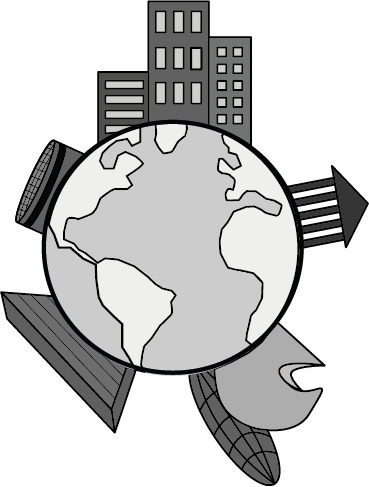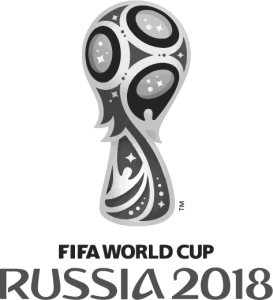Cultural Flagships: Pathways, Practices and Politics of a Global Urban Type
October 2020 – September 2024
Researchers: Martin Müller (PI), David Gogishvili and Laura Neville (postdoctoral researchers), Clotilde Trivin (doctoral student)
Funding: Swiss National Science Foundation
This project seeks to achieve two goals: first, to think and characterise cultural flagships as a global urban type and, second, to trace the individual articulations of four cultural flagship exemplars as what it calls global buildings. A database of cultural flagships worldwide will allow drawing more general conclusions on the prevalence, genealogy, context, rationales and outcomes of cultural flagships and tracing the pathways, practices and politics of the cultural flagship as a global urban type. The four case studies are all drawn from cities outside the West, which represent the global frontier of the cultural flagship as an urban type: the Louvre in Abu Dhabi, the M+ Museum in Hongkong, the Museum of Tomorrow in Rio de Janeiro, the Second World War Museum and the European Solidarity Center in Gdańsk. This choice allows not just examining their (potentially different) positioning vis-à-vis the particular urban type that is the cultural flagship, but also vis-à-vis the global cultural hegemony of the West

Culture for the Planet: Turning cultural institutions into leaders of the sustainability transition
Researchers: Martin Müller (PI) and Julie Grieshaber (Junior researcher). Funding: Swiss National Science Foundation
This transformational research project aims to develop frameworks and tools to accompany the cultural sector towards more ambitious and more systematic actions for sustainability. Museums, theatres, opera houses and other cultural institutions enjoy high levels of trust and public visibility, attracting millions of visitors across the globe each day. As such, they are predestined to shape the sustainability transition and become thought leaders and role models to inspire action for sustainability beyond their sector. The cultural sector, however, is lacking a framework and indicators for understanding and managing sustainability, as well as a benchmark to calibrate and structure ongoing sustainability efforts.
Paris 2024, Los Angeles 2028: A turnaround for the Olympics after the crisis?
October 2019 – July 2022
Researchers: Martin Müller (PI), Sven Daniel Wolfe (Postdoctoral researcher)
Funding: University of Lausanne
In this project we propose to investigate whether the preparations for the Olympic Games in Paris 2024 and Los Angeles 2028 represent a new departure in terms of planning practices for large events, so-called mega-events. Based on our previous research on mega-events in eleven countries and twenty cities, we ground this project in reference to the most common potential pitfalls of mega-event planning and governance.
Hazardous planning: Improvising the Olympics
August 2016 – June 2020
Researchers: Martin Müller
This project is about planning the unplannable: mega-projects that stretch over several years, sometimes decades, and run to several billions of euros. Among those, it focuses on the largest events in the world – the Olympic Games and the Men’s Football World Cup. The project is situated between the disciplines of geography, sociology, organisation studies and sports and leisure studies, drawing on each to better understand how organisers try to rise to the challenge of preparing for mega-events with scrupulous advance planning. But the more people plan, the more effectively chance strikes: that is what I call the planning paradox.
The Geopolitics of Geographical Knowledge
September 2017 – December 2019
Researchers: Martin Müller (PI), Carolin Schurr (collaborator), Elena Trubina (collaborator), David Gogishvili (Post-doctoral researcher), Nadja Imhof (Research Assistant)
English has quickly become the world’s de facto lingua franca for academic exchange. English-language journals therefore have the opportunity, and the responsibility, to shape academic discourse and knowledge production on a global scale. Many of geography’s leading journals bill themselves in their mission statements as ‘international journals’, ‘striving for international authorship and readership’ (Social & Cultural Geography: website). But how international are geography journals really? And to what extent do they reach beyond the Anglosphere?
More info
Mega-events as urban interventions: growth and impacts
August 2017 – July 2019
Researchers: Martin Müller (PI), Annick Leick (post-doctoral researcher), Sven Daniel Wolfe (doctoral researcher)
Funded by the Swiss National Science Foundation
The costs and infrastructural requirements of mega-events such as the Olympic Games and the Football World Cup put them among the single most transformative ventures for cities today. At the same time, their complexity and tendency to exceed budgets make them highly risky undertakings. Despite this, little is known about the impacts of different mega-events across time and the driving factors behind these impacts. This project – Phase 2 of the Swiss National Science Foundation Professorship – established the size, costs and impacts of a longitudinal sample of 66 mega-events since 1960 and the driving factors behind these impacts. It considered three types of mega-events: (1) the Olympic Summer and Winter Games as a uni-local sports event (2) the Football World Cup as a multi-local sports event (3) the World’s Fairs (Expos) as a uni-local non-sports event.
“Fanatic Energy in the Wrong Places”: Potemkin Neoliberalism and Domestic Soft Power in the 2018 Men’s Football World Cup in Russia
June 2016 – July 2019
Researchers: Sven Daniel Wolfe (doctoral researcher), Martin Müller (thesis supervisor)
This doctoral project focused on the multiple realities enacted simultaneously in mega-event host cities. It proposed that we should not look at mega-event hosting from an either-or viewpoint, and instead suggested that we replace this binary with multiplicities. This move brought to light heretofore under-examined aspects of the 2018 World Cup urban development process in Russia, focusing specifically on the preparations in the host cities of Volgograd and Ekaterinburg. In so doing, this project demonstrated the ambiguities inherent in hosting mega-events, expanded policy mobilities beyond a linear conceptualisation of mobilisation/mutation, and grounded multiplicities thinking in the socio-material landscape of the city. This project was part of the Swiss National Science Foundation project “Mega-events as urban interventions”, under the supervision of Prof. Dr. Martin Müller.





